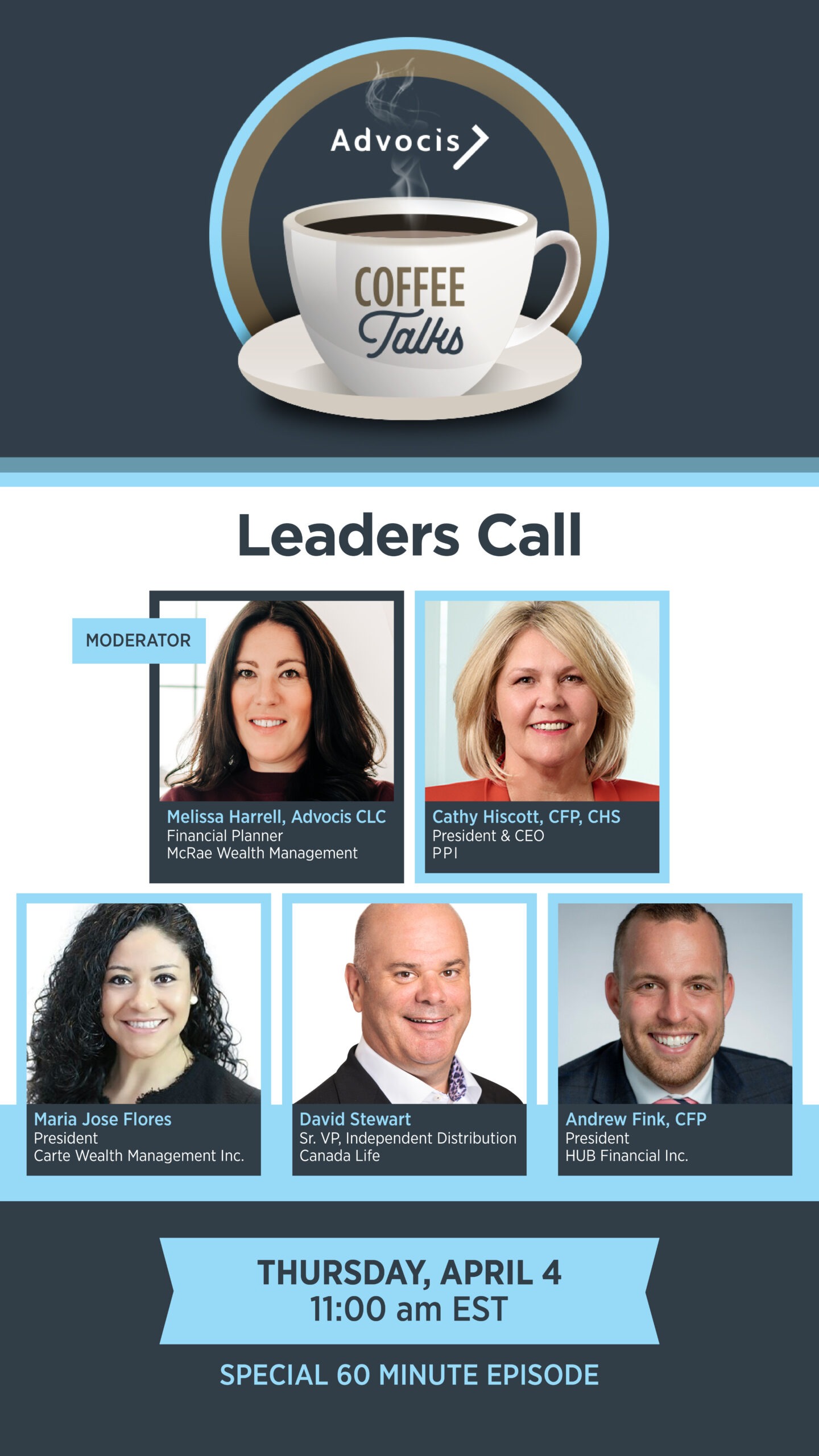Jennifer Kuta, Caldwell Investment Management Ltd.
It is important for your prospective clients to know that their potential Advisor has sufficient training, knowledge and experience to advise them on the issues that matter most to them and, often more importantly, on the issues they may not be aware of.
Before deciding to partner with a Financial Advisor, many clients research (either by calling or visiting a potential Advisor’s website) the background, experience and qualifications of the Advisor. Advisors I have worked closely with have told me that the most visited page on their website is “About Our Team” and this is an excellent place to talk about the team’s designations and qualifications.
Many Advisors, I have spoken to, recommend that clients ask their potential Advisors the following questions:
What special qualifications and experience do you have?
How many years have you been in the Industry?
What are your areas of expertise?
What courses/designations have you taken since you first became licensed?
In this post, I am interviewing Barbara Riddell, Vice-President of Education and Membership at Advocis, Canada’s largest voluntary professional membership association of Financial Advisors, representing more than 13,000 members.
Barbara is primarily responsible for education leadership, corporate business development, and strategic direction. She also oversees chapter relations, member services, and student services. More than 25 years’ effective leadership experience in financial services in product development, communications, training, and coaching have given Barbara the skills, knowledge, and perceptiveness to position Advocis as the industry standard in Advisor education.
JENNIFER: From what you’ve seen over the last five months, to what extent are Advisors taking the opportunity (as they work from home, etc.) to enroll in or work towards higher designations (such as the licensing and certificate programs that Advocis offers)?
BARBARA: At the start of COVID and the subsequent shift to working from home, we saw an initial drop in new registrations, which makes sense given that an Advisor’s number one priority was connecting with their clients. After the first few weeks, however, we began to notice a marked increase in the interest level for online courses and designation programs. This has continued with particular strength in designation programs like the CFP and CLU programs and continuing education courses. The shift to professional development is supported by a growing number of distributors encouraging and for some, mandating designations, within their Advisor distribution channels. Fostered by the Ontario Financial Professionals Title Protection Act (2019), Advisors are anticipating the proposed education requirements to hold either the Financial Advisor or Financial Planner title and pursuing these through organizations which are applying to have their designation programs recognized. Advocis is applying to have the CLU recognized for Financial Planner titling and to have the PFA recognized for Financial Advisor titling. As more financial professionals earn a designation, the annual continuing education requirement that follows will also need to be met with an expanding CE inventory; and so, that is growing exponentially as well.
JENNIFER: Do you think there will be a trend towards Advisors deciding to pursue additional designations/credentials into 2021?
BARBARA: 2020 started off strong and 2021, while flattening for some programs, is continuing to show growth. Indications at this time suggest that the interest and commitment to pursue additional designations or credentials are in line with the changes we are seeing – and expect to see – in the marketplace. In addition to consumers paying closer attention to their financial health, and governments and regulators in Ontario and Saskatchewan passing legislation on title protection, experience and the professional credentials to back it up are going to become increasingly important.
JENNIFER: Which qualifications do Advisors seem to be pursuing, in particular? (What specifically are they doing to improve their skills?)
BARBARA: Since the onset of the pandemic through to March 31, 2021, we’re seeing a maintained growth in program registrations for the CLU and CFP – both of which are considered to be advanced designations. We’ve had an exceptional 84% year over year (January 2020 – January 2021) increase in the CLU program alone.
Having a professional designation is always a good way to differentiate your services. It shows clients that you are dedicated to a higher professional bar, and that you are committed to staying up-to-date through continuing education. They can be especially helpful when working with high-net-worth or corporate clients who tend to be more discerning.
We have been very pleased to see the strong response to our new, entry-level Professional Financial Advisor (“PFA”) designation. We believe that many Advisors have taken COVID-19 as an opportunity to pursue this as their initial step after licensing as a means of upgrading their knowledge and skill set to better serve their clients, as well as to differentiate themselves from other Advisors right from the start.
JENNIFER: According to Leger Poll – February 2020, “72% of Ontarians feel that regulations that require professional designations would help protect them. The same proportion also feels that other provinces should adopt similar regulations to better protect all Canadians.” Would you consider these Advisors to be especially forward-thinking/looking? What are they seeing day to day/in their businesses right now, that might encourage the pursuit of higher designations?
BARBARA: Prudent Advisors should be looking ahead to what the post-pandemic world could look like for both their practices and their clients – and prospective clients. The economy, the industry and the consumer environment have been impacted in ways that we could not have imagined a year ago.
We commissioned a Leger poll in February 2020 to better understand Ontarian’s awareness and perceptions related to Ontario’s Financial Professionals Title Protection Act and it was interesting to note that almost three quarters of those surveyed felt that regulations that require professional designations would help protect them. And this was BEFORE the pandemic hit us.
No one knows what challenges and opportunities are left to come, but some Advisors see professional development as an important strategy to being better positioned for growth.
JENNIFER: Tell us about your designation programs. Can you start with your newest designation, the PFA (or Professional Financial Advisor designation)? Can you tell us why this designation might appeal to some Advisors out there – particularly those who are looking to get ahead and be better prepared for the post-pandemic market and consumer environment?
BARBARA: The PFA is a unique integrated designation program that targets the needs of today’s newer Advisor. It offers a strong financial planning base, an incredible practice development platform to demonstrate ‘the how’ of developing critical skill sets to succeed and provides a relevant framework to understand professional ethics along with compliance and regulatory responsibilities. It’s also unique in that we’ve built in a strong professional development pathway to make it easy to move from PFA to other designation programs like the CHS, CLU or the CFP.
JENNIFER: Anecdotally, why do you think more Advisors have been interested in pursuing higher designations? (Is it to prepare their practices for the future, improve skills/offerings to clients, set themselves apart from other professionals, increase marketability? Do you think they feel these qualifications will be necessary post-COVID?)
BARBARA: I think that the added flexibility of working from home has allowed some Advisors to pursue a designation that perhaps they’d been putting off due to lack of time. But I also believe that many Advisors are turning a strategic eye to the future and what the industry and consumer environment will look like post-COVID. They want to be prepared as best they can to address their clients’ financial situations and goals and for their businesses to not only survive, but thrive. If the spike in registrations for our designation programs tells us anything, it’s that some Advisors are going to come out better positioned for growth relative to their peers at the end of all of this.
As usual, there is a song in the title of this blog post. What is the song and who is singing it?
COMING SOON: In our next blog post, Barbara will focus on how Advisors can distinguish themselves from all the competition out there by illustrating how they add value.
For more than 25 years, I have worked with Advisors helping them build their businesses. My commitment to you is to partner with you in your practice and offer solutions to help build your business.








